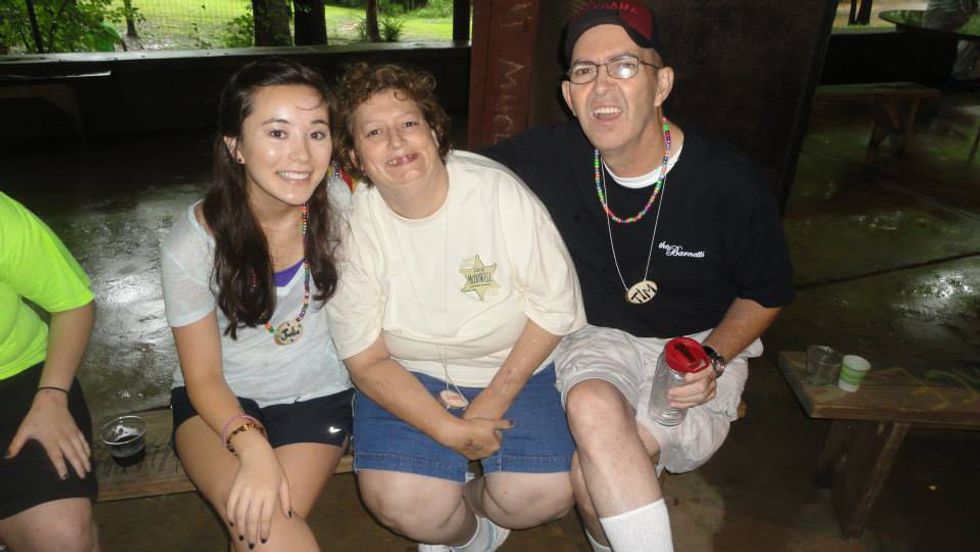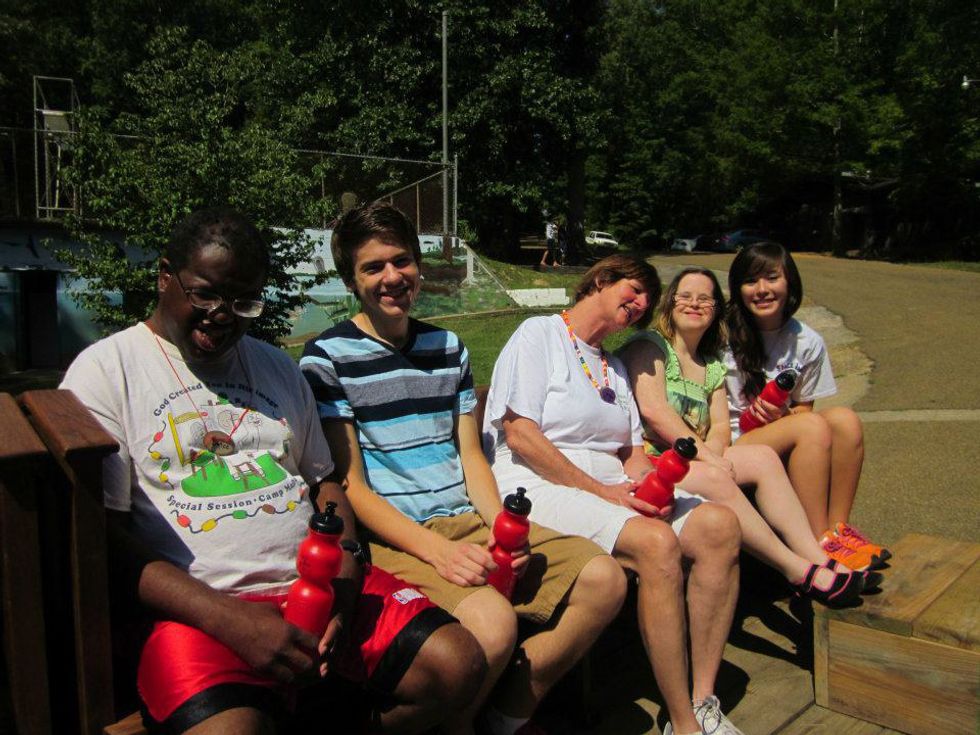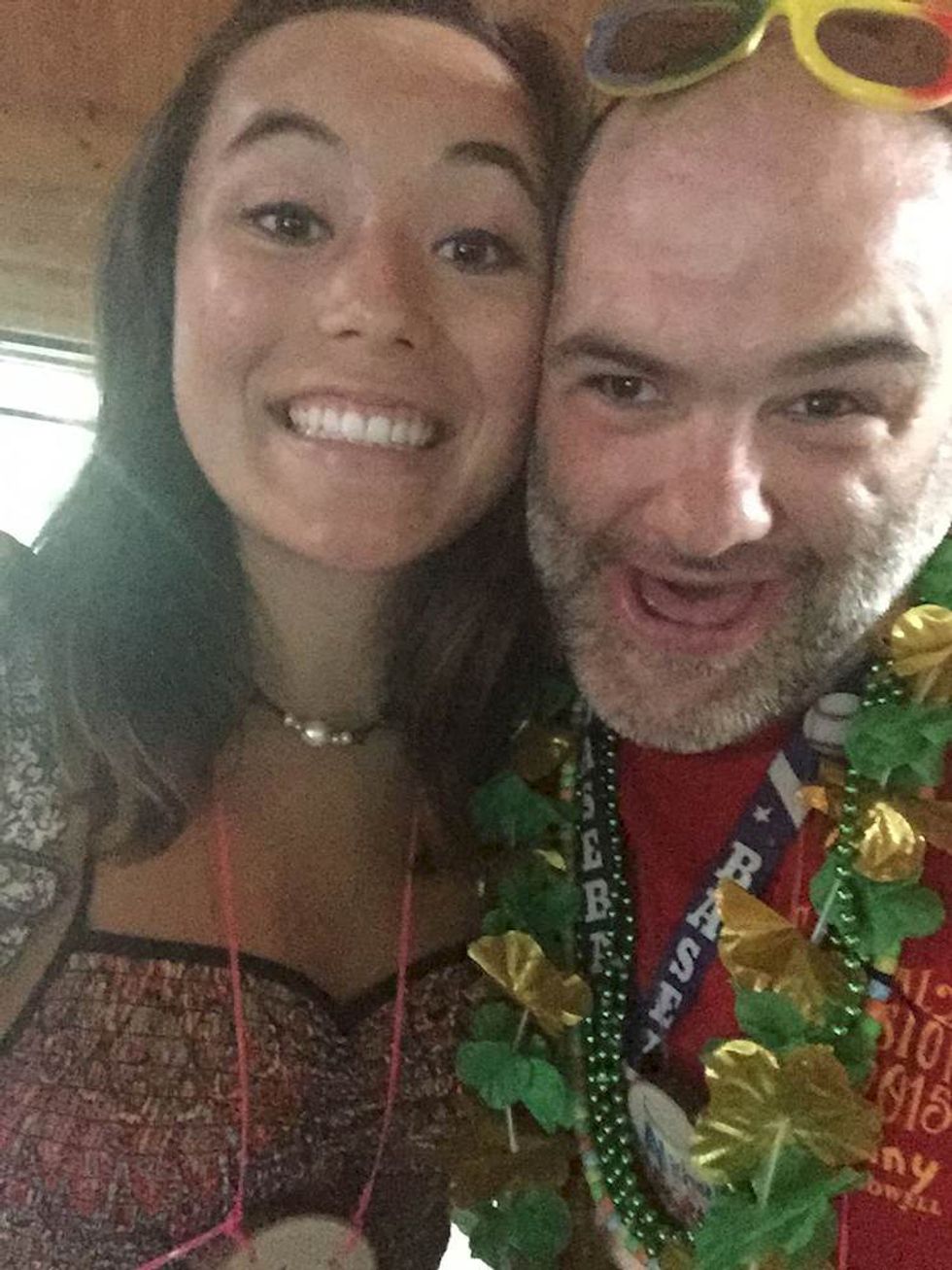Everyone of us struggles with something. We all have adversity and disabilities and for some, their needs are more visible than others. This summer I finished my fourth year at a week of summer camp as a cabin counselor for people with "special needs." Many think it is a commendable and admirable thing, to work with the mentally and or physically handicapped. "That is a really great thing you've done," they will say. My response is usually "no, it's a great thing that those people do for me."
From working at camp I have learned what Godly love is; the unconditional kind that doesn't pick and choose. I've learned that everyone has a talent, and I've laughed until I've cried.
I don't believe the word "retarded" should be used in casual conversation. Not only because it's offensive, but because it is used synonymously with words like stupid, idiotic, or dumb. Being mentally retarded does not make you any of those things. During our staff training we are taught the appropriate way to talk to campers: like regular people. Everybody deserves to be treated with respect and dignity. "Retarded" alienates and stratifies, promoting this categorical way of living where you are defined by what you can't do.
At camp another thing we talk about is gumbo. Gumbo, a cajun soup/stew type dish made with all kinds of different ingredients. Ingredients that upon first glance don't seem like they would compliment one another. When the gumbo is finished though, all of them blend together and what is left is a vibrant, delicious taste. We have gumbo moments at camp. When all of us, staff and campers are together and you don't pick out who's in a wheelchair and who is standing, who's black and who's white, or who's disabilities are more visible. We all blend together as children of God because that title is really the only one that matters. It's really as simple as that. To take the gumbo out into the real world and not treat people based any any label other than a child of God.
These ideas are unoriginal, and have been shared for centuries by many. Though historically, equality is kind of a radical concept. As people of the 21st century, we pride ourselves on the progress we have made but I think the simplest part of equality is the one we miss and is the one that prevents us from moving forward. Equality is not this broad generalization of people who aren't accepted for their titles that define them. When we treat the issue like that it extends and solidifies the "Us vs. Them" mentality that plagues the nation not only when talking about people with mental disabilities, but when talking about race, religion, orientation or any other walk of life.
Instead of subjugating someone for their differences, why not celebrate them? The differences we have, we should embrace, not fear.









 StableDiffusion
StableDiffusion Photo by
Photo by  Photo by
Photo by 
 full parking
StableDiffusion
full parking
StableDiffusion









